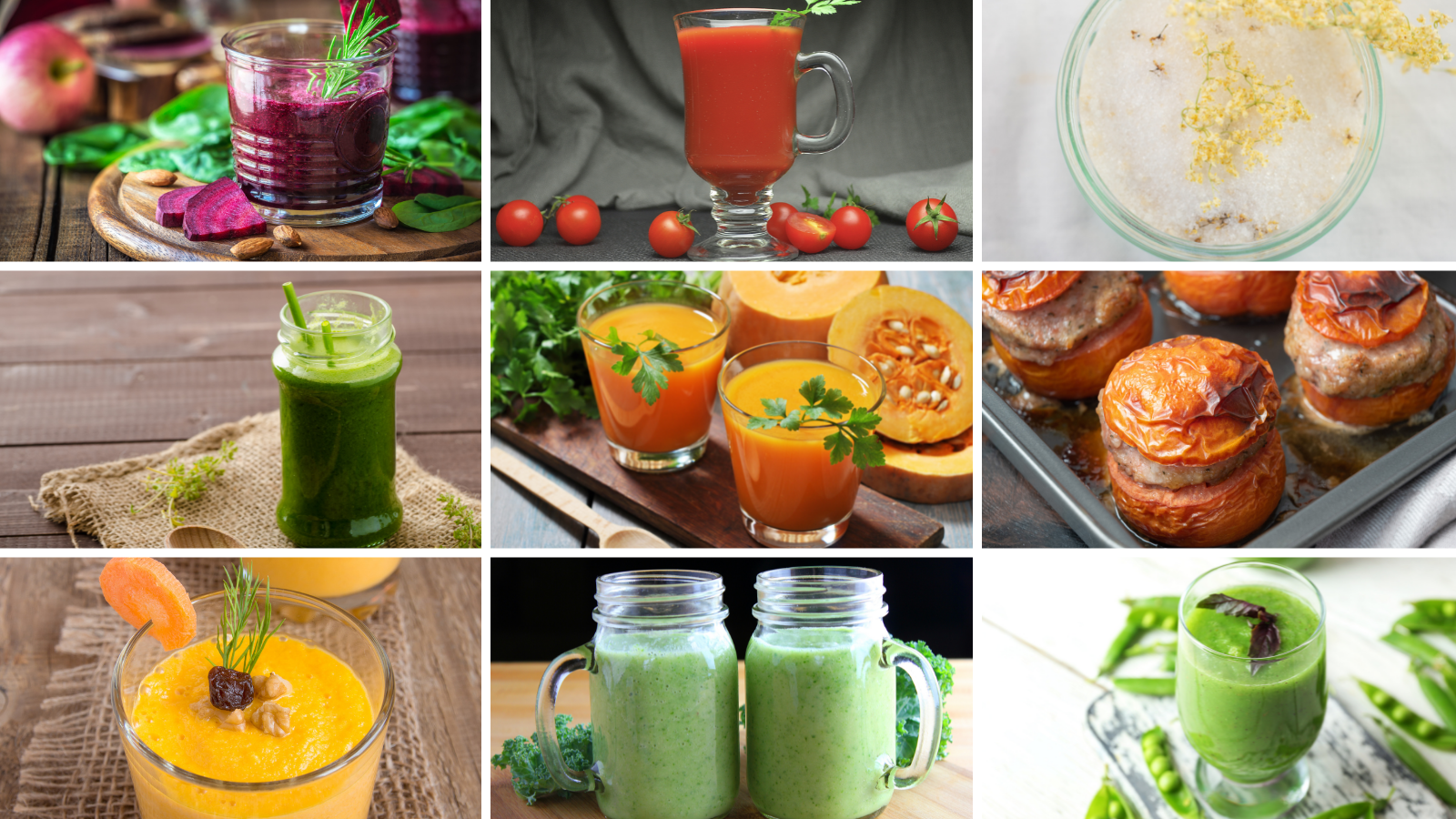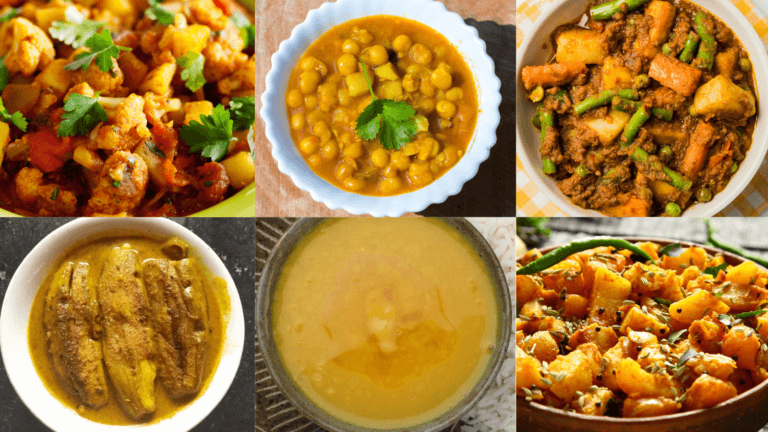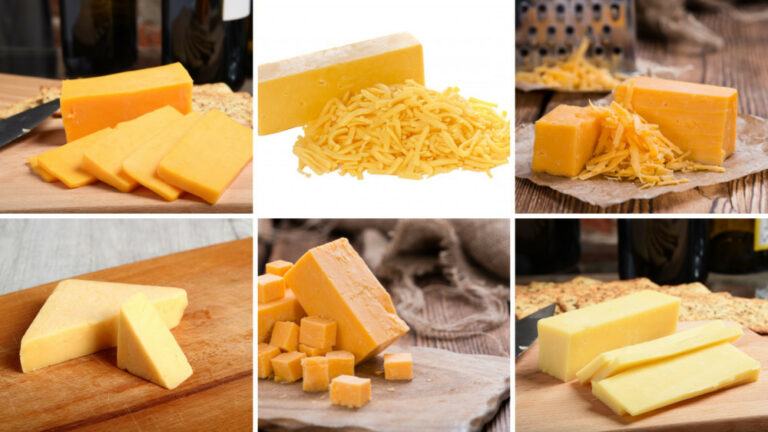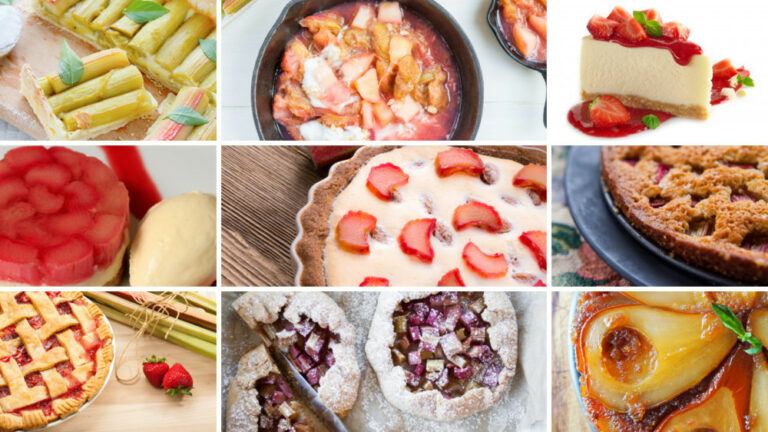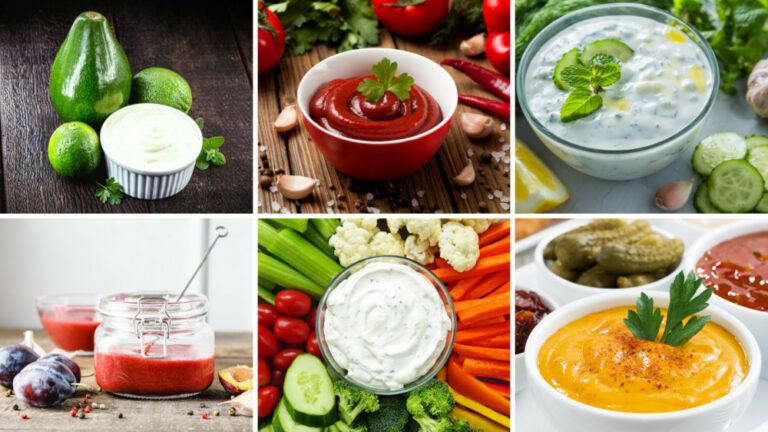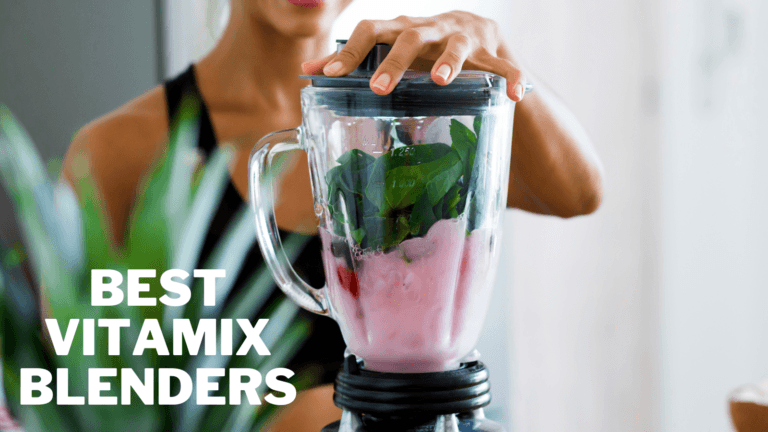9 Healthy Vegan Vegetable Smoothies For Your Kids
9 Healthy Vegan Vegetable Smoothies For Your Kids
Smoothies are a great way to start the day, an energy boost before or after a workout, or a healthy snack on the go because of their versatility and convenience. Smoothies are typically made with milk or juice, fruits such as berries or bananas, and high-energy ingredients such as peanut butter or frozen yogurt. Due to their nutrient-dense nature, vegetable smoothies provide several health benefits, whether made entirely of vegetables or a combination of vegetables and fruits.
This post may contain affiliate links. As an Amazon Associate, I earn from qualifying purchases. Read my full disclosure.
Health Benefits Of Vegan Vegetable Smoothies
Fiber Consumption
Increased fiber consumption is another advantage of drinking vegetable smoothies. Fiber promotes healthy digestion, prevents blood sugar spikes after meals, and aids in the reduction of blood cholesterol.
Because the juicing process separates the solid fiber from the fluid within the vegetable cells, you miss out on the fiber benefits if you drink vegetable juices instead of smoothies. Because making a smoothie entails simply blending the vegetables into your drink, the natural fiber content of the food is preserved.
Adding 2 cups of spinach to your smoothie adds almost 1.5 grams of fiber, which will help you meet the recommended daily fiber intake of 20 or 30 grams for women and men, respectively.
Increased Consumption of Produce
Vegetable smoothies allow you to consume multiple servings of vegetables and fruits in one sitting. According to the Harvard School of Public Health, you should eat at least nine servings of vegetables and fruits each day, but this can be difficult for some people. Choose vegetables with a mild flavour, such as spinach, to add two or more servings to each beverage to maximize your vegetable intake without significantly affecting the taste of your smoothies.
Micronutrients
Adding vegetables to your smoothie boosts your daily nutrient intake because most vegetables contain a variety of micronutrients—vitamins and minerals, as well as other beneficial compounds. Many vegetables are high in vitamin C, a nutrient that aids in the maintenance of connective tissue and B vitamins, which are essential for metabolism.
Vegetables with specific properties provide additional advantages. Kale, for example, contains all of your daily vitamin A and K requirements. If you have high blood pressure, add beet juice to your smoothies because the root vegetable contains nitrates, which may help lower your blood pressure, according to Wake Forest University.
Vegan Vegetable Smoothie Recipes
1. Vegan Cucumber Smoothie
This refreshing Toddler Green Smoothie contains apple, banana, cucumber, spinach, and plenty of pineapple! It's rich and creamy, with just the right amount of sweetness to please everyone in the family, including your child or picky eater!
Prep time: 5 minutes | Cook time: 5 minutes | Servings: 2
Ingredients
- Cucumber: ½
- Vegan milk: 1-2 cups
- Hemp seeds: ½ tablespoon
- Ripe banana: ½
- Apple peeled and cored: ½
- Pineapple: 2 cups
- Frozen spinach or kale: 1-2 cups
- Maple syrup: 1 tablespoon
Method
- In a blender, combine all of the ingredients in the order stated. Blend for 1-2 minutes, or until you get your chosen smoothie consistency, using the smoothie button on your Blendtec.
- Serve right away. A healthy vegan vegetable smoothie.
Cucumber Nutrition Facts
Cucumbers are a common garden vegetable that is tall, lean, and green. Although technically they are fruits related to watermelons and pumpkins, most people consider them vegetables. Cucumbers are native to India, have a melon-like flavour, and can be slightly bitter at times.
One medium unpeeled, raw cucumber has the following nutrients:
- Calories: 30
- Total fat: 0 grams
- Carbs: 6 grams
- Protein: 3 grams
- Fiber: 2 grams
- Vitamin C: 10% of the recommended daily value (DV)
- Vitamin K: 57% of the DV
- Magnesium: 9% of the DV
- Potassium: 12% of the DV
- Manganese: 9% of the DV
Would you like to grow your own cucumbers? Please click here to find out how on my Close-To-Nature website.
2. Vegan Beetroot Smoothie
Beets are high in nutrients. However, they should never be consumed in significant quantities by themselves. Magnesium, phosphorus, salt, calcium, iron, copper, selenium, zinc, and manganese are all critical minerals for a healthy immune system.
Prep time: 5 minutes | Cook time: 5 minutes | Servings: 1
Ingredients
- Beetroot: 1 small
- Peeled banana: 1
- Lemon juice: ½
- Water or soy milk: 1 cup
Method
- Place all the ingredients in a blender and blend until smooth. Pour into glasses.
Beetroot Nutrition Facts
Beetroot (Beta vulgaris) is a root vegetable that is also known as red beet, table beet, garden beet, or simply beet. Fiber, folate (vitamin B9), manganese, potassium, iron, and vitamin A are all abundant in beetroots.
Beets and beet juice have been linked to a variety of health benefits, including improved blood flow, blood pressure reduction, and athletic performance.
Beets are delicious raw, but they're usually cooked or pickled. Beet greens, as well as beet leaves, can be eaten. Beetroot is available in a range of colours, including yellow, white, pink, and dark purple.
One cup (136g) of raw red beetroot contains:
- Calories: 58
- Fat: 0.2g
- Sodium: 106mg
- Carbohydrates: 13g
- Fiber: 3.8g
- Sugars: 9.2g
- Protein: 2.2g
- Potassium: 442mg
Would you like to grow your own Beets? Please click here to find out how on my Close-To-Nature website.
3. Vegan Sweet Potato Pie Smoothie
Have you ever tried making a smoothie using sweet potato? If not, you must try this Sweet Potato Smoothie without bananas. This vegan, gluten-free, paleo, refined sugar-free breakfast is made with only 8 basic ingredients and is excellent for breakfast!
Prep time: 15 minutes | Cook time: 0 minutes | Servings: 2
Ingredients
- Frozen sweet potatoes blanched and cubed: 2 cups
- Plant-based milk: 1-1¼ cup
- Plant-based yogurt: 1 cup
- Maple syrup: 2-3 tablespoons
- Nut butter: 2 tablespoons
- Hemp seeds: 2 tablespoons
- Pumpkin pie spice: 2 teaspoons
- Salt: ⅛ teaspoon
Method
- Blend together the frozen sweet potato, plant-based milk, yogurt, maple syrup, nut butter, hemp seeds, pumpkin pie spice, and salt in a blender.
- Blend until completely smooth. If you want a thinner smoothie, you can add up to 1-2 glasses of milk (which may be needed if the blender is not strong).
- You can alternatively wait until the end to add the maple syrup to sweeten it to your desired amount. Then, immediately pour it into two glasses and enjoy!
Potato Nutrition Facts
Potatoes are a versatile root vegetable that is an everyday household staple. They're an underground tuber that grows on the Solanum tuberosum plant's roots. Potatoes are low-cost, easy to grow, and high in nutrients.
The USDA provides the following nutritional data for one medium (173g) baked russet potato (2 ¼” to 3 ¼” in diameter) with peel and no additional salt or toppings.
- Calories: 161
- Fat: 0.2 grams
- Protein: 4.3 grams
- Carbs: 36.6 grams
- Fiber: 3.8 grams
- Vitamin C: 28% of the RDI
- Vitamin B6: 27% of the RDI
- Potassium: 26% of the RDI
- Manganese: 19% of the RDI
4. Vegan Tomato Smoothie
Tomato smoothie is a low-calorie, high-nutrient tomato drink that is a health-conscious foodie's dream come true. It's a fresh tomato juice with ice variation that's best consumed during the summer. This smoothie not only refreshes you, but it also provides nourishment without adding calories to your diet.
Prep time: 25 minutes | Cook time: 10 minutes | Servings: 2
Ingredients
- Tomatoes: 4 medium
- Tomato Juice, optional: ½ cup
- Carrot, peeled and chopped: 1 medium
- Celery stalk, chopped: 1
- Ground Black Pepper: ¼ teaspoon
- Ice Cubes: 6
- Lemon Juice: 2 teaspoons
- Salt
Method
- Freeze for 20 minutes after cutting tomatoes into quarters.
- In a blender, combine the frozen tomatoes, tomato juice, celery, carrots, black pepper, and salt. Puree until it's smooth.
- Add ice cubes after squeezing lemon juice over it. Blend for another 30 seconds on high speed, until the texture is smooth.
- To serve, pour the tangy tomato smoothie into chilled serving glasses.
Tomato Nutrition Facts
Tomatoes are the primary dietary source of lycopene, an antioxidant associated with a variety of health advantages, including a lower risk of heart disease and cancer. Vitamin C, potassium, folate, and vitamin K are all abundant in them.
Tomatoes are typically red when fully mature, but they can also be yellow, orange, green, or purple. Furthermore, there are numerous subspecies of tomatoes, each with its own shape and flavour.
One small tomato (91g) has 16 calories, 0.8 grams of protein, 3.5 grams of carbs, and 0.2 grams of fat. Vitamin C, fiber, and vitamin K are all abundant in tomatoes.
- Calories: 16
- Fat: 0.2g
- Sodium: 5mg
- Carbohydrates: 3.5g
- Fiber: 1.1g
- Sugars: 2.4g
- Protein: 0.8g
- Vitamin C: 12.5mg
- Vitamin K: 7.2mcg
Would you like to grow your own Tomatoes? Please click here to find out how on my Close-To-Nature website.
5. Vegan Carrot Cake Smoothie
A lovely, creamy smoothie packed with carrot cake tastes! Only seven healthy components are required: banana, carrot, plant milk, and seasonings.
Prep time: 15 minutes | Cook time: 10 minutes | Servings: 4
Ingredients
- Ripe frozen banana: 1 large
- Carrot: 1 small, chopped
- Pitted date: 1
- Ground cinnamon: ¼ teaspoon
- Vanilla extract: ½ teaspoon
- Fresh minced or grated ginger: 1 teaspoon
- Dairy-free milk: ½ – 1 cup
- Plain or vanilla protein powder: 1 scoop (~23g)
Method
- In a high-powered blender, combine the banana, carrot, date (optional), cinnamon, vanilla, fresh ginger (or ground ginger), nutmeg, and dairy-free milk (start with a small amount), and protein powder (optional).
- Blend until creamy and smooth. To thin/encourage blending, add more dairy-free milk as needed.
- Taste and modify the flavour as desired, adding additional cinnamon for warmth, ginger for spice/kick, or a date for sweetness if desired.
- Serve plain or with shredded carrot, shredded coconut, walnuts, or hemp seeds as a garnish (optional). When it's fresh, it's the best. It will last up to a month in the freezer (thaw before enjoying).
Carrot Nutrition Facts
Carrots, although being a root vegetable, are lower in carbs than many other root vegetables. Carrots give a splash of colour to salads, soups, stews, and side dishes, as well as a variety of nutrients.
One medium carrot (61g) has:
- Calories: 25
- Fat: 0g
- Sodium: 42mg
- Carbohydrates: 6g
- Fiber: 1.5g
- Sugars: 2.9g
- Protein: 0.5g
- Vitamin A: 509mcg
- Vitamin K: 8mcg
Would you like to grow your own Carrots? Please click here to find out how on my Close-To-Nature website.
6. Vegan Kale Smoothie
Kale smoothie is a delicious, filling, and healthful breakfast or snack meal. It takes less than 5 minutes to prepare and only has three ingredients.
Prep time: 5 minutes | Cook time: 5 minutes | Servings: 2
Ingredients
- Fresh kale: 1 cup
- Frozen (or regular), large banana: 1
- Plant-based milk: ¾ cup
- Almond butter: 1 tablespoon
- Ground cinnamon: ½ teaspoon
- Medjool dates: 1-2
Method
- In a blender, combine all of the ingredients and blend until smooth.
- The smoothie is best served fresh, but it can be stored in an airtight container in the refrigerator for up to two days.
Kale Nutrition Facts
Kale is a cabbage (Brassica) family member that is often referred to as a superfood due to its high nutritional content per calorie. Kale is also low in fat and high in fiber, making it an excellent complement to practically any diet due to its numerous nutritional and health benefits.
Paymaster told Live Science that kale is high in vitamins K, A, and C. “Vitamin K is beneficial to heart health, blood coagulation, bone health, cancer prevention, and diabetes prevention.”
Vitamin A is good for your skin and vision. Vitamin C is essential for immunological and joint health, as well as for keeping the body hydrated and increasing metabolism. One cup of raw kale (20.6g) provides:
- Calories: 7.2
- Fat: 0.3g
- Sodium: 10.9mg
- Carbohydrates: 0.9g
- Fiber: 0.8g
- Sugars: 0.2g
- Protein: 0.6g
- Vitamin A: 49.6mcg
- Vitamin K: 80.3mcg
- Vitamin C: 19.2mg
- Potassium: 71.7mg
- Calcium: 52.3mg
Would you like to grow your own Kale? Please click here to find out how on my Close-To-Nature website
7. Vegan Green Pea Citrus Smoothie
Smoothie with fresh, flavourful frozen green peas and citrus! Made with mango and citrus, it's a nutritious, easy, naturally vegan, and delicious solution.
Prep time: 2 minutes | Cook time: 5 minutes | Servings: 5
Ingredients
- Navel orange, peeled: 1 medium-large
- Water: 1 cup
- Loosely packed fresh spinach leaves: 1 cup
- Frozen green peas: ¼ cup
- Fresh lime juice: 2 tablespoons
- Frozen mango, pineapple or banana: ¾ cup
Method
- In a blender, combine everything except the optional sweetener.
- Blend on high until the mixture is perfectly smooth.
- If desired, sweeteners can be added to taste.
Pea Nutrition Facts
Green peas are almost as popular in the United States as apple pie. Green garden peas are the peas we usually think of eating cooked or in a soup (or English peas). Sugar snap peas, which are consumed as whole peapods, are not the same. Half a cup of frozen peas (80g) cooked without salt contains:
- Calories: 62
- Fat: 0.2g
- Sodium: 58mg
- Carbohydrates: 11g
- Fiber: 3.6g
- Sugars: 3.5g
- Protein: 4.1g
- Vitamin K: 19.2mcg
- Zinc: 0.5mg
Would you like to grow your own Peas? Please click here to find out how on my Close-To-Nature website
8. Vegan Pumpkin Pie Smoothie
For the Pumpkin Pie Smoothie only 6 ingredients are needed to make the ultimate pumpkin pie smoothie—creamy, spiced to perfection, and ready in minutes! This is my go-to vegan pumpkin pie smoothie.
Prep time: 5 minutes | Cook time: 5 minutes | Servings: 5
Ingredients
- Light coconut milk, chilled-1 can
- Bananas, sliced and frozen: 3 medium
- Pumpkin puree: ¾ cup
- Pure maple syrup: 1 tablespoon
- Pumpkin pie spice: 1 teaspoon
- Pure vanilla extract: ¼ teaspoon
Method
- Refrigerate the can of light coconut milk for 1-2 hours, or until totally cooled.
- Blend the bananas in a blender. Blend the bananas until they are crumbly. Pour in the chilled coconut milk. Scrape down the edges of the blender as needed until the mixture is smooth and creamy.
- Combine the remaining ingredients in a mixing bowl: pumpkin, maple syrup, pumpkin pie spice, and vanilla extract. Blend until completely smooth.
- Fill two cups with the mixture. Top with coconut whip and cinnamon, if desired. Enjoy.
Pumpkin Nutrition Facts
Pumpkin is a Cucurbitaceae family winter squash. It's a North American native that gets a lot of attention during Thanksgiving and Halloween. In the United States, pumpkin refers to the orange winter squash Cucurbita pepo.
Pumpkin may apply to any type of winter squash in other countries, such as Australia. Pumpkin is a superfood that's high in vitamins and minerals. It's nutrient-dense, which means it's packed with vitamins and minerals but low in calories.
Pumpkin is classified as a fruit since it contains seeds, despite its usual perception as a vegetable. However, it resembles vegetables more than fruits in terms of nutrition. One cup (245 grams) of canned pumpkin provides:
- Calories: 137
- Protein: 3 grams
- Fat: 7 grams
- Carbs: 19 grams
- Fiber: 7 grams
- Vitamin A: 209% of the Daily Value (DV)
- Vitamin K: 37% of the DV
- Copper: 28% of the DV
- Vitamin E: 22% of the DV
- Iron: 18% of the DV
- Magnesium: 13% of the DV
- Riboflavin: 10% of the DV
- Vitamin B6: 10% of the DV
- Vitamin C: 10% of the DV
- Potassium: 10% of the DV
9. Vegan Swiss Chard Smoothie
This Swiss Chard Smoothie is a delicious and nutritious way to start your day. This recipe is vegan and dairy-free, but it's incredibly creamy and filling.
Prep time: 12 minutes | Cook time: 5 minutes | Servings: 2
Ingredients
- Filtered water: 1 ½ cups
- Hemp seeds: 2 tablespoons
- Frozen banana: ½
- Frozen strawberries: 1 ¼ cups
- Peanut butter: 2 tablespoons
- Pitted dates: 2
- Handfuls of Swiss chard: 2 large
- Protein powder of your choice: 2 scoops
Method
- In the base of a high-powered blender, combine the water, hemp seeds, banana, strawberries, peanut butter, dates, Swiss chard, and protein powder.
- Blend on high for 30-45 seconds, or until the smoothie is smooth and creamy. Serve immediately.
Chard Nutrition Facts
Among the most nutrient-dense diets are dark, leafy green veggies. Although kale is frequently regarded as the king of greens, Swiss chard is almost as outstanding in terms of its nutritional value. Chard and other leafy greens are high in nutrients:
They are low in calories, carbohydrates, sugars, and fat, but they're abundant in fiber, vitamins, minerals, and antioxidants. Chard provides numerous health benefits as a result of these nutrients and is an excellent addition to your diet. Swiss chard, as well as other chard kinds, is simple to prepare, versatile, and widely available.
Just 1 cup (175 grams) of cooked Swiss chard contains:
- Calories: 35
- Protein: 3.3 grams
- Carbs: 7 grams
- Fiber: 3.7 grams
- Vitamin K: 477% of the Daily Value (DV)
- Vitamin A: 60% of the DV
- Magnesium: 36% of the DV
- Vitamin C: 35% of the DV
- Copper: 32% of the DV
- Manganese: 25% of the DV
- Iron: 22% of the DV
- Vitamin E: 22% of the DV
- Potassium: 20% of the DV
- Calcium: 8% of the DV
Would you like to grow your own Swiss Chard? Please click here to find out how on my Close-To-Nature website.
Conclusion
Blending is more beneficial than eating a salad because it allows your body to absorb more nutrients. This happens because the blender has the ability to break down a plant's cell walls. As a result, the antioxidants are released, allowing for easier digestion.
Smoothies can technically be introduced into your child's diet after their first birthday, but we recommend waiting until they are 15-18 months old. Let us know which smoothie your kids liked most. Would you like to get more smoothie recipe ideas? Please feel free to check out our other blog on the 20 Different Vegan Smoothie Recipes For Your Kids.
I trust you enjoyed this article about the 9 Healthy Vegan Vegetable Smoothies For Your Kids. Please stay tuned for more blog posts to come shortly. Take care!
JeannetteZ
>>>Want To Learn How To Create Delicious, Cruelty-Free, Healthy AND 100% Vegan Meals? Try These Awesome Vegan Cooking Courses With A Free 7-DAY MEMBERSHIP<<<
Your Opinion Is Important To Me
Ideas? Thoughts? Questions? I would love to hear from you. Would you please leave me your questions, experience, and remarks about this article on the 9 Healthy Vegan Vegetable Smoothies For Your Kids, in the comments section below? You can also reach me by email at Jeannette@LivingTheVeganLifestyle.org.
Disclosure
This post may contain affiliate links. As an Amazon Associate and other affiliate programs, I earn from qualifying purchases. Read my full disclosure.
Here are links to some of my favourite articles:
7 Delicious Vegan Recipes Using Tomatoes For Your Kids
7 Delicious Vegan Camembert Recipes
Yummy Breadfruit Recipes With Health Benefits
5 Delicious Vegan Blue Cheese Recipes

